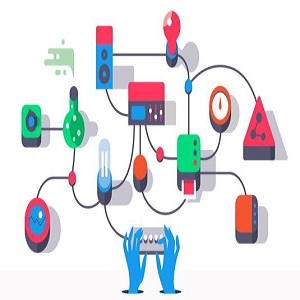The development of large language models (LLM) have brought unprecedented possibilities for artificial intelligence (AI) based medical diagnosis. However, the application perspective of LLMs in real diagnosis scenarios is still unclear because they are not adept at collecting patient data proactively. This study presents a novel approach that implemented AI systems to emulate the two-phase process used by physicians during medical consultations. Our methodology involves two specialized planners: the first employs a data-driven, reinforcement learning approach to formulate disease screening questions; the second uses LLMs to parse medical guidelines and conducts differential diagnosis. By utilizing real patient electronic medical records (EMR) data, we constructed simulated dialogues between virtual patients and doctors and evaluate the diagnostic abilities of our system. We demonstrate that our system surpasses existing models, including GPT-4 Turbo, in both disease screening and differential diagnosis. This research represents a step towards integrating AI more seamlessly into clinical settings, potentially improving the accuracy and accessibility of medical diagnostics.
翻译:暂无翻译





